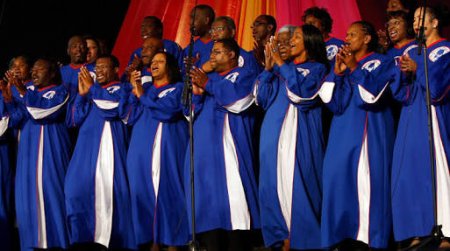M
mrsam
Guest
Nigerians are music-loving people, and they love singing and dancing to a fault. Indigenous folks sing on the farms and on their way to the river, while educated folks whistle in the bathroom or attend disco parties or concerts to dance away their sorrows. With a population of about 180 million people, Nigeria is blessed with older generation musicians and modern singers who are doing the nation proud at home and abroad.
But music in Nigeria has a history and can be largely categorized into genres. Music in Nigeria assumed commercial interests in the early 1900s, and by 1910 popular musicians are already emerging into popular genres. Some of these will be examined here and now:
Juju:
Juju music is a local music style that took shape in the early 1920s and popularized by Nigeria’s first musical stars which included Tunde King, and Irewole Denge. By the 1950s other artists such as Tunde Nightingale, J. O Araba, C. A Balogun came into the Juju music scene, and by early 1960s I. K Dairo rose to stardom and took the center-stage, paving the way for Ebenezer Obey and Sunny Ade to come up into prominence. Sir Shina Peters, Dele Taiwo, and Dayo Kujore also achieved fame with Juju in the early 1990s when the genre was declining in popularity.
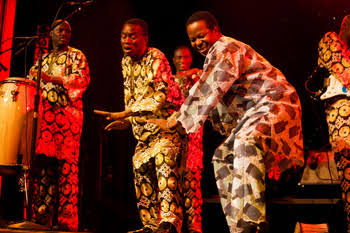
Highlife:
Highlife originated in Ghana and then Cameroon and Zaire, with Ghanaian E. T Mensah popularizing it in Ghana in the 1950s. Then Nigerian Bobby Benson, Cardinal Rex Lawson, and Dr. Victor Olaiya came on the scene; but the brand of music achieved more with Igbo musicians such as Chief Stephen Osita Osadebe, Oliver De Coque, Celestine Ukwu, Oriental Brothers, Sonny Okosun, Victor Uwaifo, and the Yoruba Orlando Owoh.
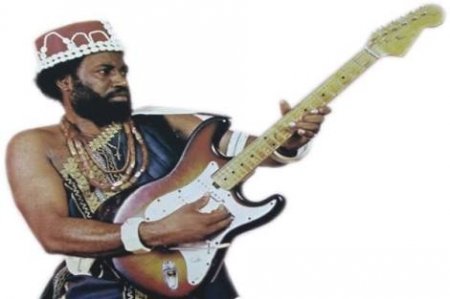
Apala:
Apala is a slow and emotional dirge-like kind of music which took root in Ogun State and popularized by Haruna Ishola and Ayinla Omowura in the early 1960s. Olatunji Yusuf raised the genre high in the early 70s and Musiliu Ishola, Haruna’s son also made an attempt to resurrect the genre among the Yoruba-speaking people in 2003 with his own album.
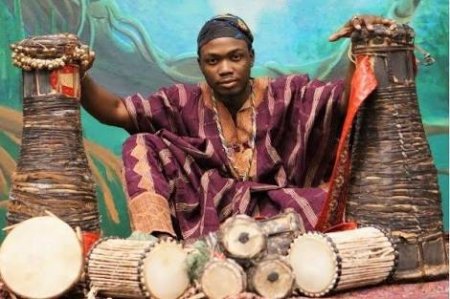
Waka:
Waka is predominantly sung by Yoruba women with Islamic backgrounds. The most reputable among these is Queen Salawa Abeni who ruled the Waka music genre for almost three decades with no other artist dislodging her leadership in the genre.
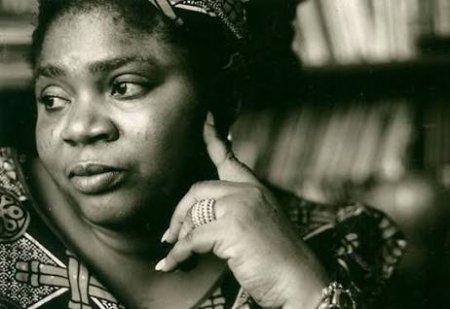
Afro-beat:
Afro-beat was popularized by Fela Anikulapo Kuti around 1961, playing a mixture of funk, highlife, jazz and West Africa music to make his blend of music. Although Fela is credited with pioneering Afrobeat, Orlando Julius Ekemode was also prominent as an Afro-beat musician. Upon Fela’s death in 1997, his son Femi Kuti took the stage and promoted Afro-beat by releasing several album and touring Europe. Then the masked musician, Lagbaja, entered the stage with his form of Afrobeat which became instant hit with people all over the country because of his enigmatic performance.
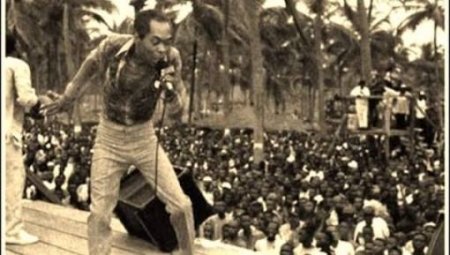
Fuji:
Fuji: Sikiru Ayinde Barrister gave the name “Fuji” to the new form of Yoruba music prevalent among Islamic communities of Yoruba people in the early 1970s. Before Kollington Ayinla rose up as a rival to Barrister, and by 1980 another competitor came into the fuji music genre – Wasiu Ayinde Marshall. These first shaped the early brand of the music among Yoruba-Islamic peoples before other players arrived the scene today.
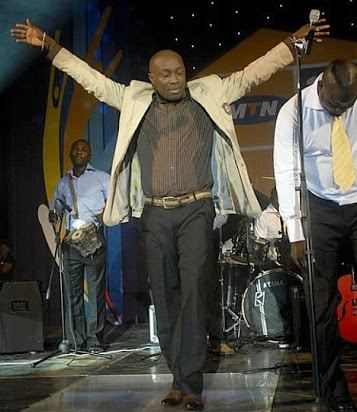
But music in Nigeria has a history and can be largely categorized into genres. Music in Nigeria assumed commercial interests in the early 1900s, and by 1910 popular musicians are already emerging into popular genres. Some of these will be examined here and now:
Juju:
Juju music is a local music style that took shape in the early 1920s and popularized by Nigeria’s first musical stars which included Tunde King, and Irewole Denge. By the 1950s other artists such as Tunde Nightingale, J. O Araba, C. A Balogun came into the Juju music scene, and by early 1960s I. K Dairo rose to stardom and took the center-stage, paving the way for Ebenezer Obey and Sunny Ade to come up into prominence. Sir Shina Peters, Dele Taiwo, and Dayo Kujore also achieved fame with Juju in the early 1990s when the genre was declining in popularity.

Highlife:
Highlife originated in Ghana and then Cameroon and Zaire, with Ghanaian E. T Mensah popularizing it in Ghana in the 1950s. Then Nigerian Bobby Benson, Cardinal Rex Lawson, and Dr. Victor Olaiya came on the scene; but the brand of music achieved more with Igbo musicians such as Chief Stephen Osita Osadebe, Oliver De Coque, Celestine Ukwu, Oriental Brothers, Sonny Okosun, Victor Uwaifo, and the Yoruba Orlando Owoh.

Apala:
Apala is a slow and emotional dirge-like kind of music which took root in Ogun State and popularized by Haruna Ishola and Ayinla Omowura in the early 1960s. Olatunji Yusuf raised the genre high in the early 70s and Musiliu Ishola, Haruna’s son also made an attempt to resurrect the genre among the Yoruba-speaking people in 2003 with his own album.

Waka:
Waka is predominantly sung by Yoruba women with Islamic backgrounds. The most reputable among these is Queen Salawa Abeni who ruled the Waka music genre for almost three decades with no other artist dislodging her leadership in the genre.

Afro-beat:
Afro-beat was popularized by Fela Anikulapo Kuti around 1961, playing a mixture of funk, highlife, jazz and West Africa music to make his blend of music. Although Fela is credited with pioneering Afrobeat, Orlando Julius Ekemode was also prominent as an Afro-beat musician. Upon Fela’s death in 1997, his son Femi Kuti took the stage and promoted Afro-beat by releasing several album and touring Europe. Then the masked musician, Lagbaja, entered the stage with his form of Afrobeat which became instant hit with people all over the country because of his enigmatic performance.

Fuji:
Fuji: Sikiru Ayinde Barrister gave the name “Fuji” to the new form of Yoruba music prevalent among Islamic communities of Yoruba people in the early 1970s. Before Kollington Ayinla rose up as a rival to Barrister, and by 1980 another competitor came into the fuji music genre – Wasiu Ayinde Marshall. These first shaped the early brand of the music among Yoruba-Islamic peoples before other players arrived the scene today.



